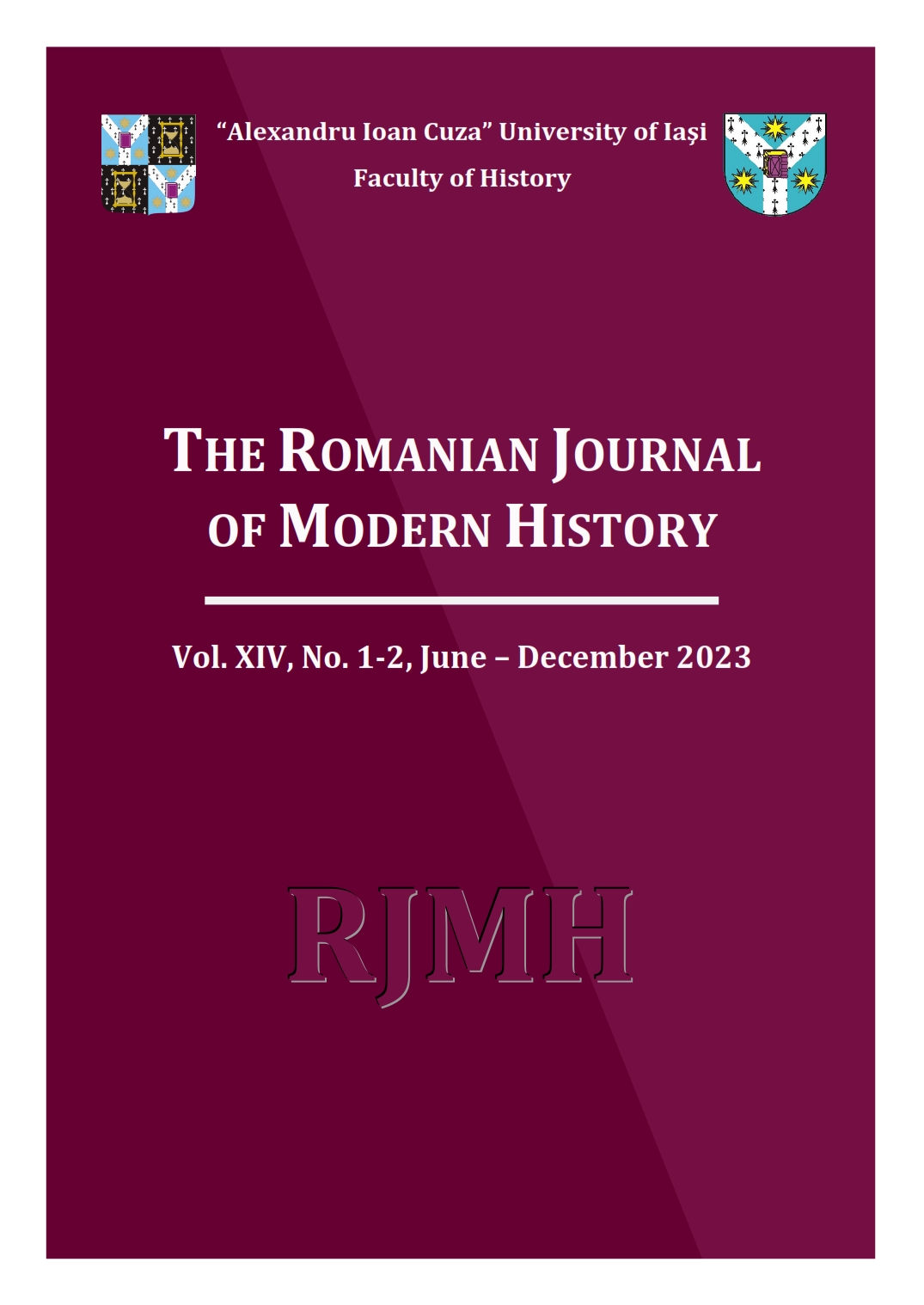With the Russian “allies” passing through Romania. The concerns of Germanophiles in a country under military occupation (1916-1918)
With the Russian “allies” passing through Romania. The concerns of Germanophiles in a country under military occupation (1916-1918)
Author(s): Claudiu-Lucian ToporSubject(s): Military history, Pre-WW I & WW I (1900 -1919)
Published by: Editura Tehnopress
Keywords: Russian army; World War I; Romania; military occupation;
Summary/Abstract: In the summer of 1916, Romania entered a coalition war in difficult conditions. The Liberal government was oriented towards an alliance with the Entente powers and invested high hopes in the outcome of this political project. However, military cooperation functioned poorly since the very beginning of the mobilization of the Romanian army. At the end of a disastrous campaign carried out North-West of the Carpathians, two thirds of the Romanian territory (including the capital, Bucharest) was ceded to the Central Powers. The cause of the defeat was the tactical superiority of the Central Powers and the lack of training of the Romanian army. However, the Romanian political decision-makers of the time avoided any in-depth analyses. It is certainly no coincidence that the Russian allies were among those condemned in the public space. Accused of hastily leaving the battlefield and facilitating the enemy's offensive, the Russian comrades were labelled as traitors as soon as the evolution of the war became unfavourable to Romania. An old current of opinion, hostile to Romania's alliance with Russia, was reactivated in the territory occupied by the Central Powers. Radical followers of the current (Germanophile politicians, administration officials, media people, deserting army officers, etc.) openly proclaimed that the Russian troops had “invaded” Moldavia right from the moment STAVKA transferred large numbers of troops there (over one million soldiers) with the mission to stop the offensive of the German armies. The outbreak of the February revolution in Russia and the failure of the Kerensky offensive (July 1917), an essential manoeuvre on which the success of the battles in Moldavia depended, deepened the Romanians’ distrust in the combativeness of Russian soldiers. The Romanian front was being swept by a wave of anarchy and the danger of the spread of Bolshevism strengthened the anti-Russian current in occupied Romania. Supported from the shadows by the German occupiers, this discourse accredited the idea that King Ferdinand had handed over the country to the Russians who had established a true occupation regime in Moldavia. The “patriotic” Romanians were called in the occupied territory to support the German armies in their effort to “liberate” the whole of Romania from Russian occupation. My paper refers to the articulation and spread of the anti-Russian current in the territory of the German military administration. I intend to analyse how the experience of the war managed to deepen this perception in society and to identify the levers through which the military administration influenced its establishment in political debate in occupied Romania.
Journal: Romanian Journal of Modern History
- Issue Year: XIV/2023
- Issue No: 1-2
- Page Range: 119-134
- Page Count: 16
- Language: English

